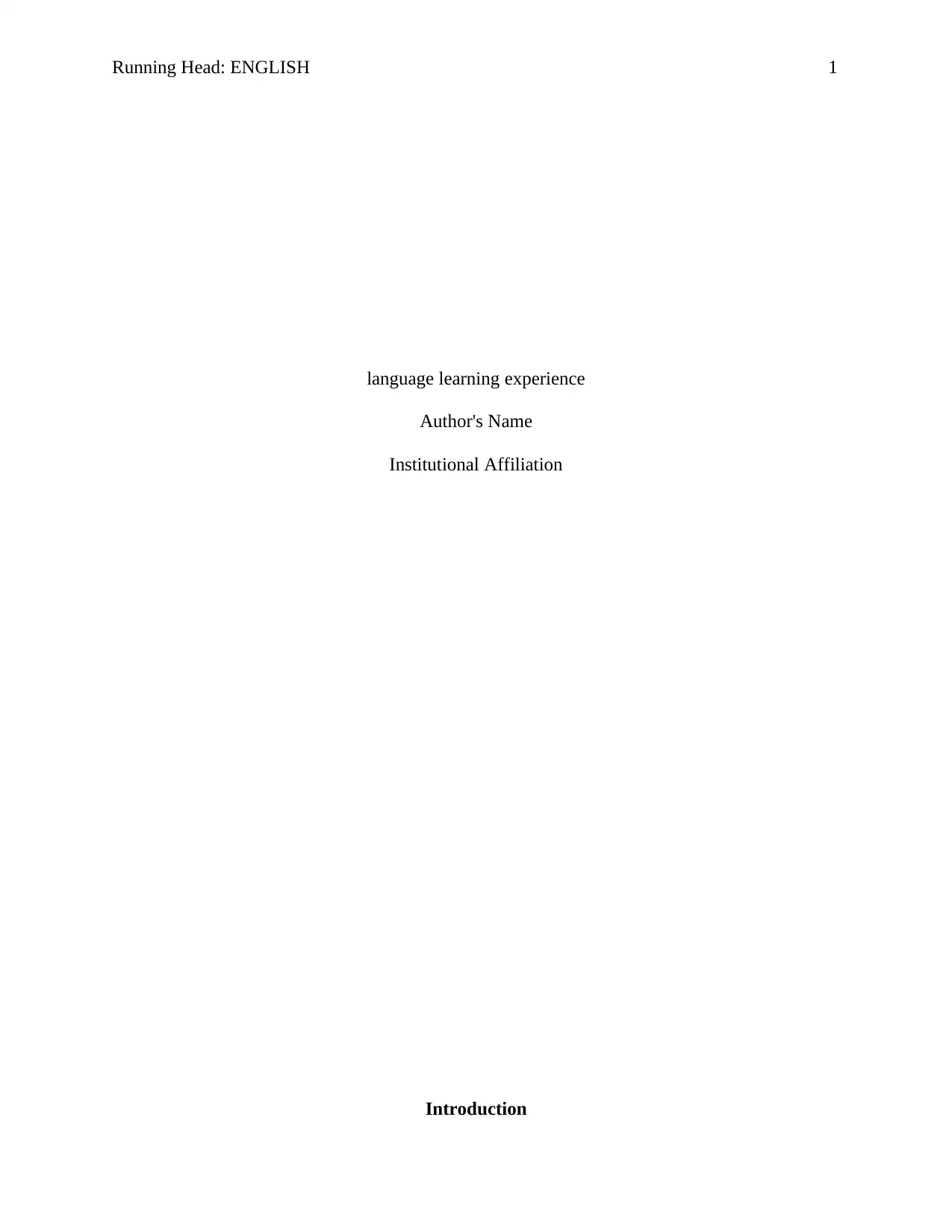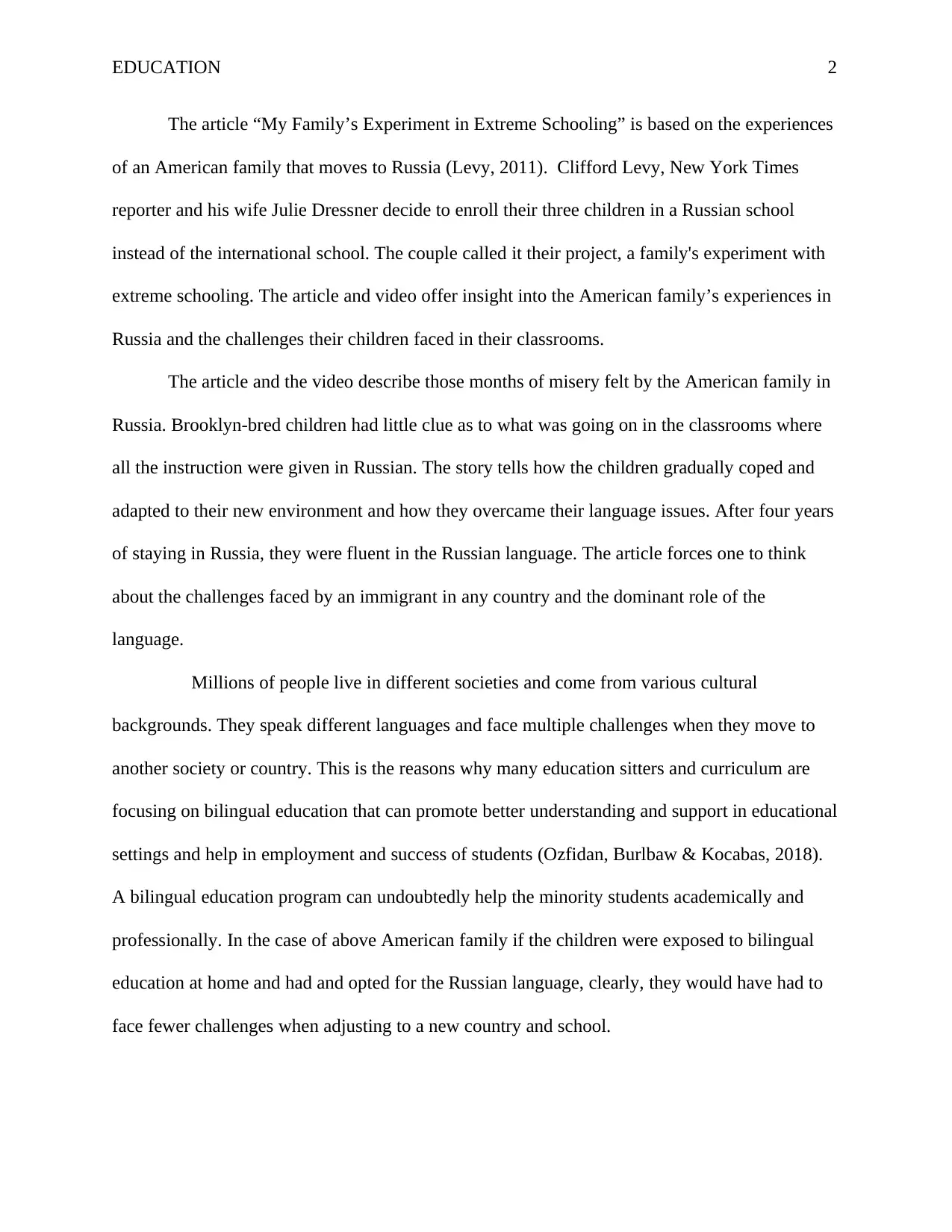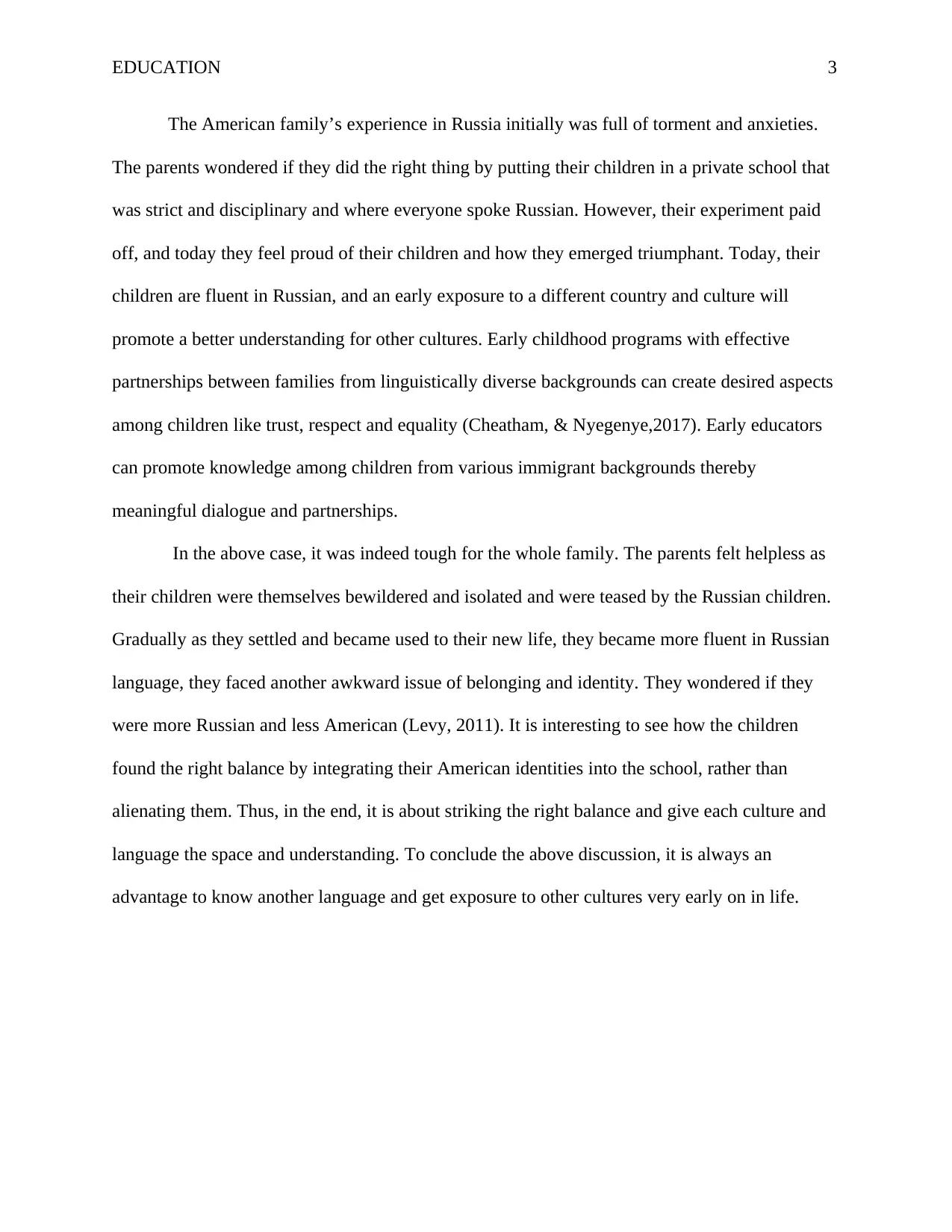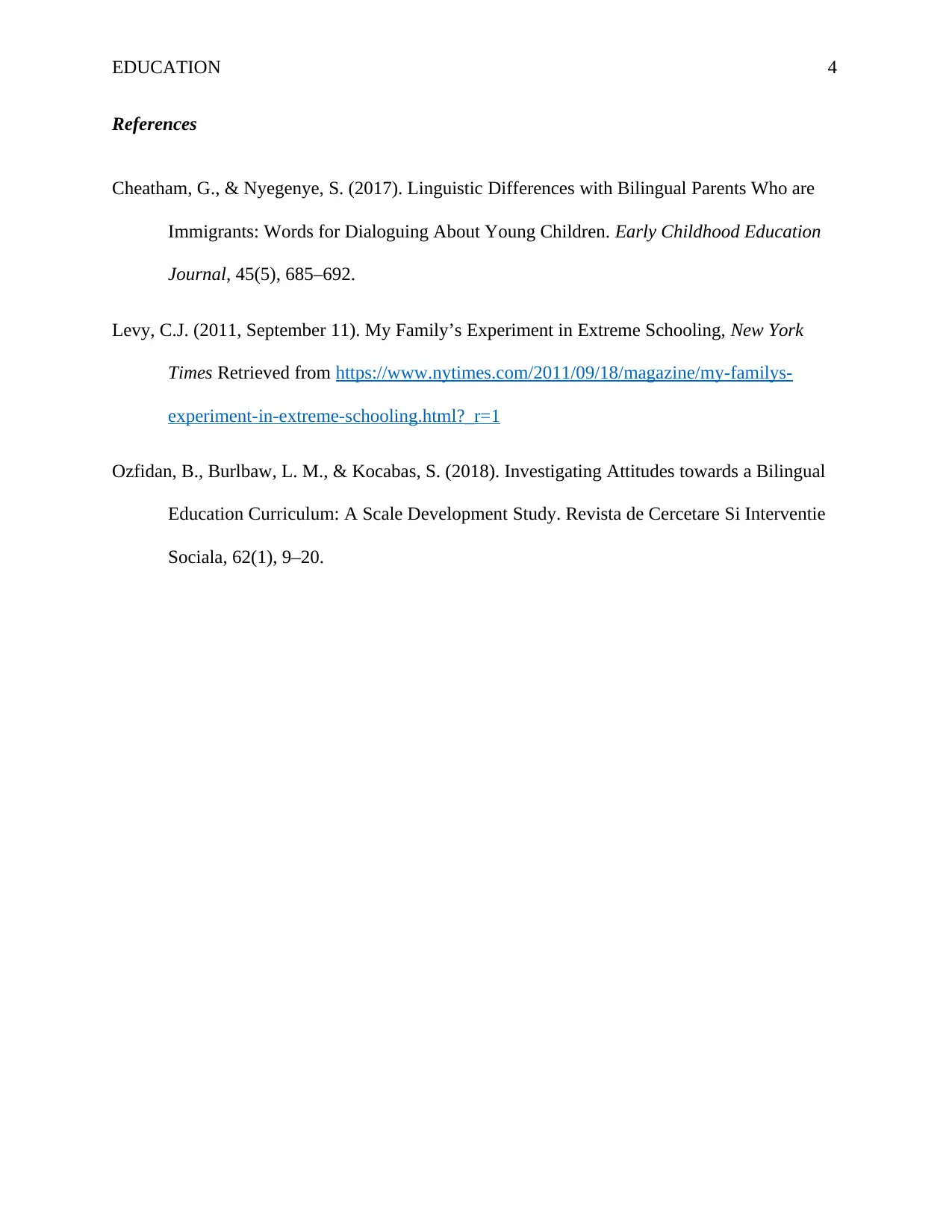Journal 3: American Family's Language Learning Experience in Russia
VerifiedAdded on 2023/04/22
|4
|768
|421
Journal and Reflective Writing
AI Summary
This journal entry analyzes the language learning experience of an American family in Russia, as detailed in the article "My Family's Experiment in Extreme Schooling." The family's initial challenges, including the children's bewilderment and isolation due to the language barrier, are discussed, along with the parents' anxieties about their children's adjustment to a strict, Russian-speaking school. The journal highlights how the family overcame these difficulties, eventually achieving fluency in Russian and adapting to a new culture. The entry relates the family's experiences to concepts of bilingual education and cultural immersion, emphasizing the importance of early language exposure and the challenges faced by immigrants. The author reflects on the balance between cultural identity and the benefits of multilingualism, providing insights into the family's journey and its broader implications for language acquisition and cultural understanding. The article stresses the importance of bilingual education and its benefits for both academic and professional success. The journal offers a detailed analysis of the family's experience, the challenges they faced, and the lessons learned, providing a comprehensive overview of the topic.
1 out of 4







![[object Object]](/_next/static/media/star-bottom.7253800d.svg)